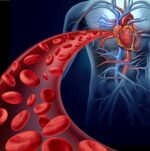Undergrads Win NIH Award to Develop Rapid SCD Diagnostic Test
Written by |

In support of its work to develop a rapid test that can be used to diagnose sickle cell disease (SCD), a team of undergraduate researchers at Lehigh University has received a $15,000 award as part of the National Institutes of Health’s Healthcare Technologies for Low-Resource Settings Prize.
“I was really shocked. We’ve been trying for this grant every year since the project began,” Tiffany Pang, a bioengineering major at Lehigh who helped lead the grant application, said in a university press release.
“This is a nationwide design competition between biomedical engineering programs, so this is great recognition for these students. I’m very proud of them,” said Xuanhong Cheng, PhD, a professor at Lehigh and the project’s lead mentor.
The project’s overarching goal is to develop a diagnostic system that works sort of like a pregnancy test to detect the specific proteins associated with SCD or sickle cell trait — when a person does not have SCD, but carries a SCD-causing mutation that could still be passed to their biological children.
“It’s been proven that early screening can help decrease the mortality rates of those with sickle cell disease,” Pang said. “And so our goal is to develop an affordable, sensitive, point-of-care lateral flow device that shows results in less than 15 minutes.”
The students are hopeful that, once developed, their device might improve care for people living in Sierra Leone and other parts of the world where access to advanced laboratory tests is limited.
Cheng, who visited Sierra Leone in 2018, said that “doctors were estimating that up to 90 percent of kids with sickle cell disease don’t survive past age five.
“There’s no cure, and there’s no effective treatment other than managing the symptoms,” she added.
The research team had been planning to travel to Sierra Leone to test their system, but those plans were scrapped after COVID-19 spiked in the country, forcing researchers to rearrange their priorities.
“In the spring, we were focused on re-evaluating the device and making sure it was functional because we had planned to travel to Sierra Leone in August to test the device on children 5 years and below with Sickle Cell Disease,” said Laura Duffany, a dual major in behavioral neuroscience and global studies at Lehigh. “But when that trip got canceled, we honed in on social marketing and being an active propagator of our project to the public.”
The new diagnostic device is in alpha testing phase, which means that researchers are now working to increase its sensitivity, decrease its cost, and understand how it fares in comparison with other diagnostic devices on the market.
“Since we’re still in our alpha testing phase, I didn’t think we’d garner the attention of the NIH. This award shows that diagnostics are really just so important,” Pang said.
“I think the most exciting thing about research is realizing the global implications of it,” Duffany said. “I have this foundation now, and a real passion to solve these problems.”



